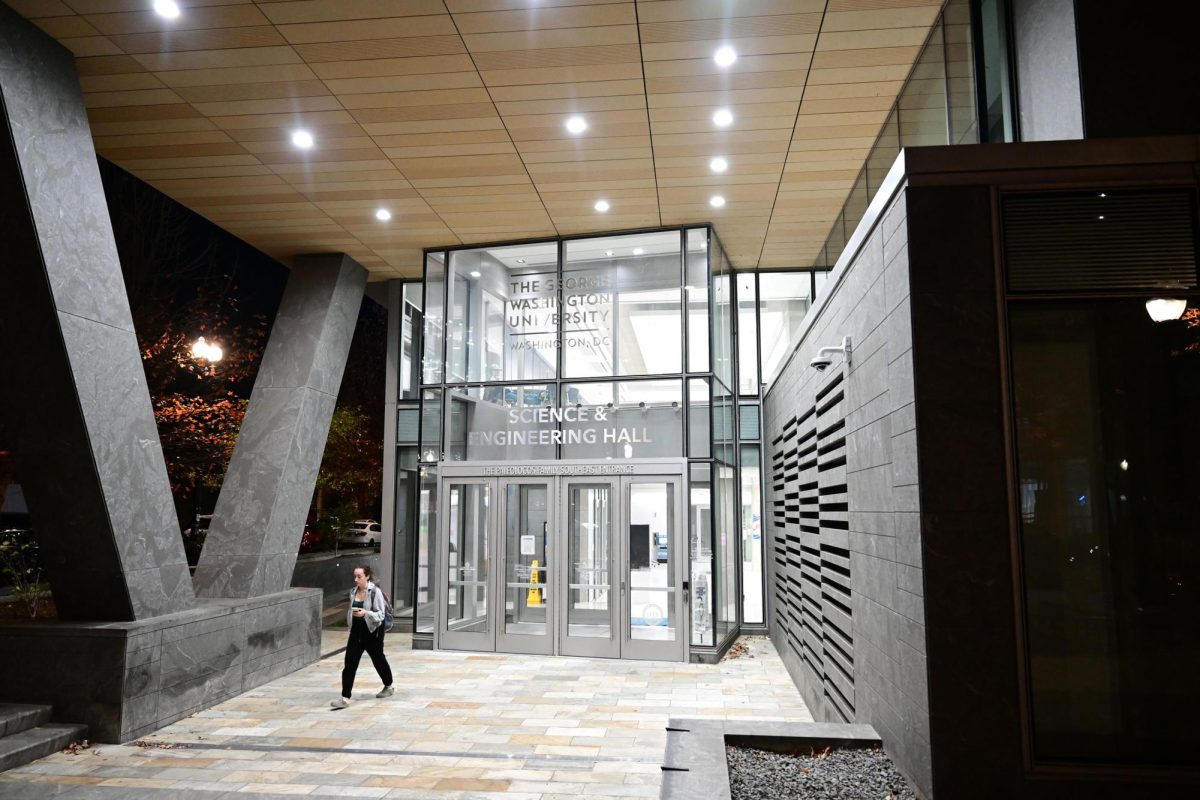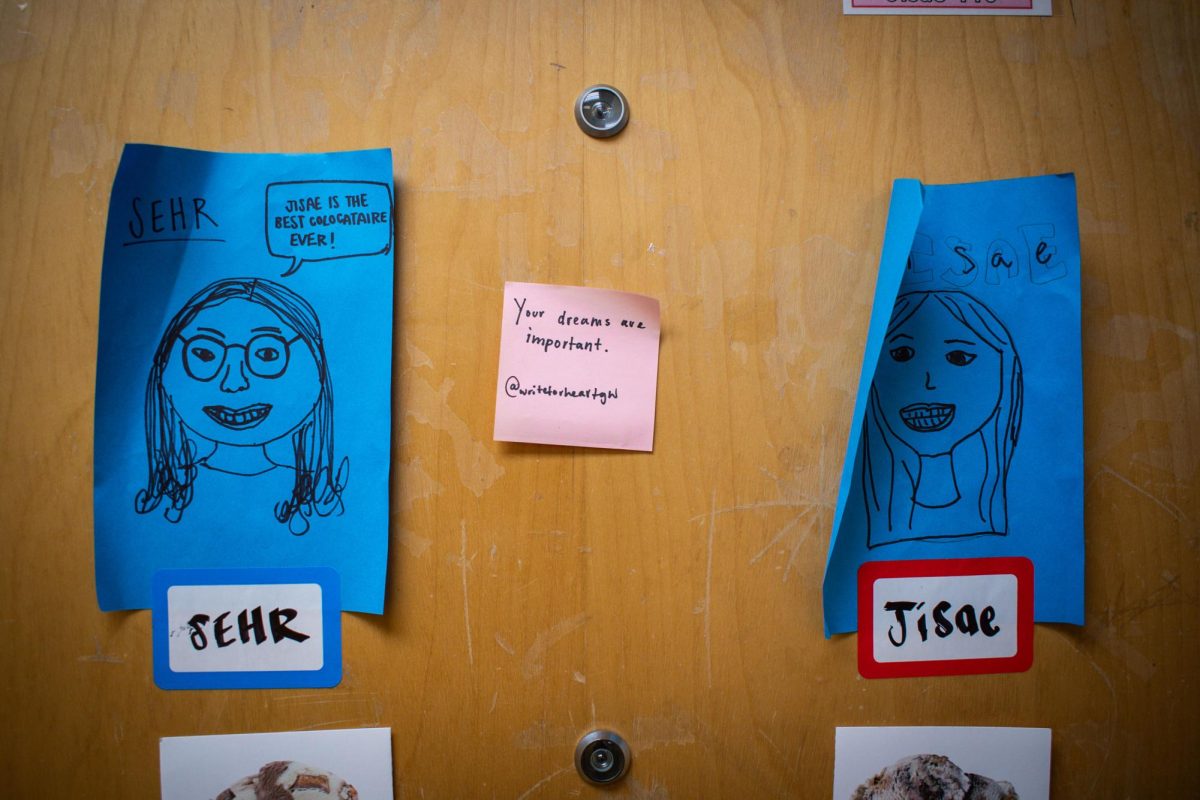Recently created provisional Interfraternity Council chapters plan to petition for their charters within the next two summers despite stable recruitment numbers, a requirement for the stamp of approval, dropping this year.
Leaders in Phi Gamma Delta and Alpha Epsilon Pi, both established within the past two years, said they will petition to receive their charters this summer and in the summer of 2025, respectively, to become official voting members in the IFC and fully recognized within their national fraternities. Provisional fraternity leaders said they hope to receive their charters, which require steady recruitment and continuous member growth, despite all IFC recruitment numbers dropping by a quarter this spring.
IFC President Jack Palaian, a senior, said chapters are considered “prospective” by their national organizations until they meet certain requirements that earn them their charter, proving they are viable on a campus like demonstrating consistent growth, financial stability and embracing their chapter’s values.
“A charter from a national essentially says that this chapter has met all of our requirements and has proven themselves as able to stay long standing on a campus,” Palaian said.
He said the IFC requires chapters to receive their charter before becoming voting members of the council, which would allow them to vote on amendments to the council’s constitution and elect IFC leaders. Palaian said the IFC held elections for next year’s leadership last week.
“It means you’re a sanctioned member of the school,” Palaian said, referring to a chapter securing its charter.
FIJI President William Shumate, a junior, said the chapter, which debuted on campus two years ago, will petition for a charter at FIJI’s national convention in August, where all of the fraternity’s chapters will vote on recognizing the GW chapter.
FIJI extended five bids and recruited one new member this spring, according to Brian Joyce, the assistant dean of student life, and took on no new members in the IFC’s fall 2023 formal recruitment process. Shumate said the chapter added five new members total this semester after their informal recruitment process.
He said he believes the chapter has a “good chance” of receiving their charter at this summer’s convention but expects it will be competitive as there are more chapters petitioning than spots available. He said there are three or four spots available for five chapters petitioning, many of which are “bigger” than GW’s chapter.
“We’ve been here for two years, we have a lot to show for it,” Shumate said. “We have grown in the last semester, we finally cracked the code sort of on how we want to recruit, how we do recruitment. Our members are very engaged in the school and I think that we can show that.”
Shumate said if the group does not receive their charter over the summer they will petition again in the winter. He said while the group cannot participate in voting in the IFC without receiving a charter, members still plan to introduce ideas like a chair for diversity, equity and inclusion to the council in the fall that the other chapters will vote on.
He added that obtaining their charter would give the chapter more “protection” from their national organization which could pull their provisional chapter if they don’t see viable growth or if the chapter does “something wrong” like violate chapter rules. He said receiving their charter would also allow them to fully participate in their chapter’s “ritual” — part of a chapter’s initiation process which reveals the secrets only members can know about a chapter — and give them voting rights within their national chapter.
“It’s something that can help us in the future, actually have a say in what is actively going on in the fraternity,” Shumate said.
Shumate said he thinks GW’s campus is “on edge” following “global turmoil” which has caused hesitancy in people wanting to join student organizations. He said campus divisions could have played a role in the IFC’s lower recruitment numbers this spring.
The IFC faces a decline in enrollment after the number of students who accepted bids dropped about 27 percent from 116 students in spring 2023 to 84 in spring 2024.
“It’s kind of closed off campus a little bit,” Shumate said. “People, I think, tend to be less talkative than they used to. That’s sort of what I’ve seen at least.”
Aidan Cullers, a sophomore and former president of AEPi — which re-joined campus last spring after AEPi officials shut down the chapter in 2014 for hazing, drug and alcohol violations — said the chapter is about halfway through their charter process which involves showing “proper growth,” having “some level” of savings and complying with national chapter policies. He said in the coming year the chapter will focus on recruitment, achieving a stable financial outlook and hosting a broad range of activities like social and philanthropy events.
He said the chapter of AEPi, a Jewish fraternity, will host their annual “Walk to Remember” on May 5 to honor the lives lost during the Holocaust on the international Jewish holiday Yom HaShoah.
Cullers said AEPi national does not require provisional chapters to reach a specific number of members to petition for their charter because Greek life looks different at each school and they want to avoid standardization across campuses. AEPi national looks for successful recruitment events, new member retention and takes into account the size of provisional chapters’ recruitment class as part of their criteria for chartering.
AEPi added five new members to their chapter this fall and five more this spring.
Cullers said this spring’s drop in overall IFC recruitment was a “concern” as the chapter looks toward steady recruitment for their charter but the chapter was content with the five new members they added. He said he is hopeful for next year’s recruitment because chapters talked to Fraternity and Sorority Life staff about better promoting Greek life after this year’s recruitment drop.
“If we are able to promote what Greek life is like at GW, then I think GW students will be able to see that it’s something that they would want to participate in, because I think when you don’t do that, then the perception of what Greek life is is what Greek life is like at a Big Ten school or an SEC school which, admittedly, even for me and I’d say for a lot of people on this campus is probably not something that people would be super into here,” Cullers said.
AEPi President Aidan Rosenblum, a sophomore, said the provisional chapter which started with 18 members and now has 23 puts the chapter in “good standing,” he worries about the chapter’s ability to recruit after the IFC faced a drop in recruitment numbers this spring. He said people have preconceived ideas about Greek life that may not be as prevalent on GW’s campus like instances of “hazing, racism and sexism” that he thinks deters people from joining.
“It’s hard to change the opinions of GW students, everyone’s got their outlook on Greek life, and it’s just not a big deal here at GW and I wish that that could be changed,” Rosenblum said.








